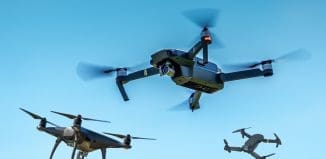Watch Tests in Robotic Combat Vehicles
This post is also available in:  עברית (Hebrew)
עברית (Hebrew)
One of the US Army’s most ambitious weapons programs, remote-controlled Robotic Combat Vehicles (RCV), is actually ahead of schedule, Brig. Gen. Richard Ross Coffman, director of the Next Generation Combat Vehicle Cross-Functional Team, told breakingdefense.com. Overall, the robots are about two years more sophisticated than expected, he said. Capabilities the service expected in 2023 are now potentially achievable in 2021.
In particular, he stressed the advanced levels of autonomy – much of it derived from civilian work on self-driving cars – and of modularity – that is, the ability to swap different sensors, weapons, and other systems to tailor the robots for different Army missions.
The Army has already field-tested software and tactics using modified M113s – an obsolete armored transport – and checked out eight new robots for the Robotic Combat Vehicle from six private-sector teams during a week of demonstrations. Coming up, the service plans three years of increasingly complex field experiments, with real soldiers controlling real robots, to test RCV concepts and technology before deciding whether to commit to a full-scale acquisition program.
The National Advanced Mobility Consortium — an organization of industry and academic researchers contracted by the US government to develop autonomous ground systems for the military — has recently selected four companies to build prototype light robotic combat vehicles for the US Army. These are “non-developmental” prototypes, meaning they’re based on existing technologies that could be turned into deployable systems with relatively minor modifications, according to arstechnica.com.






























